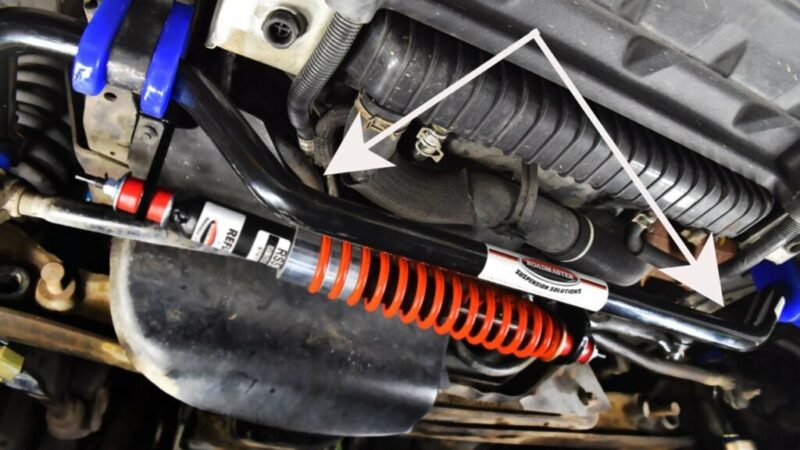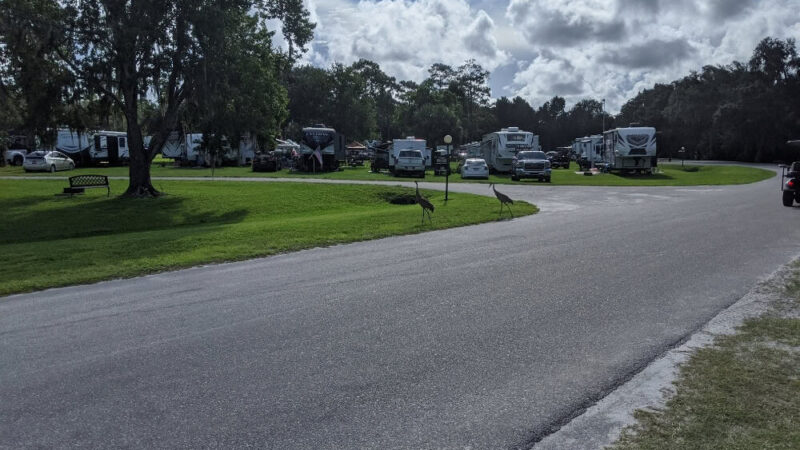Can Police Search Your RV Without A Warrant?

Know Your Rights: Understanding When Police Can Search Your RV
Generally speaking, the answer to the question “Can the police search my RV without a warrant?” is no, because the Fourth Amendment protects your privacy.
The right of the people to be secure in their persons, houses, papers, and effects, against unreasonable searches and seizures, shall not be violated, and no warrants shall issue, but upon probable cause, supported by oath or affirmation, and particularly describing the place to be searched, and the persons or things to be seized.
Fourth Amendment
That’s the law, but of course every situation is different. It’s these unique circumstances that give rise to all the case law that further defines how the Fourth Amendment should be interpreted and applied. And that is where we encounter all the exceptions to our Fourth Amendment privacy expectations. So, what are the exceptions that give the police the authority to search your RV without a warrant?
The police search must be based on probable cause
The Fourth Amendment states that a search may be conducted when the police obtain a warrant that is based on probable cause. The probable cause must establish that a crime is being committed, that evidence of a crime is present, or that contraband is present, and these facts must be supported by an oath (in a practical sense, that means a written affidavit describing the details that establish the probable cause).
Obtaining a search warrant takes time. Even if the police officer has clear probable cause, they still need to write the supporting affidavit, present it to a judge, obtain his/her signature, and then return to the location to execute the search. In my experience as a police officer, this process takes a minimum of four or five hours and depends on what time of day or night you are seeking the warrant.
So, how can the Fourth Amendment be upheld while also preserving the rights of drivers who are not subject to a vehicle search? Is it fair to require passengers to wait on the roadside for hours while an officer prepares an affidavit, finds a judge, secures a signature, and obtains a warrant? To resolve this predicament, an exception called exigent circumstances has been established. Nevertheless, law enforcement officials must still establish probable cause before conducting a warrantless search.
Exigent circumstances
Exigent circumstances state that warrantless searches of vehicles (including the trunk, luggage, or other containers which may reasonably contain evidence or contraband) are lawful. This may be where your RV could be searched by the police without a warrant, but it’s not universally applicable in all situations.
For example, if you’re driving a truck towing a fifth wheel trailer in a state where marijuana is illegal, and you get stopped by the police who smell marijuana emanating from your truck, the officer has probable cause to believe that contraband is present in your truck, but does not have probable cause that contraband is present in your fifth wheel trailer. It might be plausible to assume that if you have marijuana in your truck, you may also have it in your trailer, but plausible is not probable. Therefore, the officer can legally search your truck without a warrant, but not your trailer.

Plain view
There are a few different ways to establish probable cause, and one of the most obvious is plain view. When evidence of a crime or contraband is in plain view, it immediately establishes probable cause.
An example of this might be as follows: A police officer legally pulls over a motorhome because the license plate is partially obscured.
This actually happened to us in Alabama. We had a temporary Florida plate on the RV, and Oregon plates on the tow car, but the officer couldn’t see the state, so he pulled us over.
If when he walked up to the driver’s window of our motorhome, he had seen a stack of crates in plain view from the driver’s window, piled up behind the co-pilot’s seat, and each crate had a blindfolded chicken or rooster with leather straps around their claws, he would have had probable cause to believe we were in possession of contraband (fighting birds), and he would have had the right to conduct a warrantless search of our entire motorhome. Just to be clear, the last part of this example did not apply to our situation.
Public view
Another way officers can establish probable cause is when evidence of crimes or contraband is in the public view. This may seem like a no-brainer, but as a police officer, I had many occasions to obtain search warrants based solely on what was readily observable and in public view.
Using the marijuana example again, let’s say you’re from Colorado, and before you left home, you decided to take one of your marijuana plants with you in your RV. Now you’re camped for a couple of weeks in a state where using marijuana is legal, so you put your marijuana plant on the picnic table so it can get some sun. The marijuana plant is in public view, and a police officer who happens to be in the park for another matter notices the plant on your picnic table. They know that using marijuana in that state is legal, but growing marijuana falls under a separate statute called “manufacturing a controlled substance,” and it’s a felony.
The public view of the plant gives them probable cause, and they may execute a warrantless search of your RV because it’s reasonable to assume that if you have evidence of the crime of manufacturing a controlled substance in public view, you may also have additional contraband, manufacturing paraphernalia, or controlled substances out of sight in your RV.
Even if you are scheduled to stay in the park for a couple of weeks, they don’t have time to obtain a search warrant because exigent circumstances still exist. You’re camping in a vehicle that could be back on the road in a flash. It’s like someone committing a crime in an Airbnb or hotel. Just because these structures have a fixed address doesn’t mean the occupants or the contraband will still be there tomorrow. Unfortunately for you, searching your RV without a warrant based on their articulation of the public view probable cause would be the most prudent police procedure.
Administrative searches
The final type of situation that could lead to a warrantless search of your RV is an administrative search, such as a roadblock, checkpoint, or border crossing. In the case of a roadblock or checkpoint, the issues of plain and public view are particularly relevant, but in the case of a border crossing, the scope of warrantless searches is boundless.
Border agents may inspect any part of your RV, as well as your towing or towed vehicle. They can search any cupboard, container, cabinet, or crevice and take as long as needed to confirm that you are not engaged in any illegal activity or carrying any contraband. If you intend to cross any national border (regardless of which direction you are going), then you should review what can legally be transported across that border. We have had firewood, potatoes, and citrus fruit confiscated by border agents, and we voluntarily surrendered our mace that we had forgotten to dispose of before crossing into Canada. Warrantless searches at any border crossing can be extensive and intrusive, and you should be prepared for the unexpected.
Share your experiences
A warrantless search of your RV is a much broader discussion than what has been covered in this article. Additionally, the law is constantly changing because of new case law being adjudicated, which redefines how the Fourth Amendment should be interpreted and what exceptions impact the prevailing interpretations.
As a final note, I wrote this summary based on my background as a former police officer. But I am sure all the lawyers in our RV community who are reading this have a much deeper understanding of all the issues surrounding lawful and unlawful warrantless searches. Therefore, for the benefit of our readers, you are all invited to comment on or clarify any of these points in the comment section below.
Related articles:
- What not to do when your RV is pulled over by the police
- Think Twice Before RVing With Marijuana Across State Lines
The post Can Police Search Your RV Without A Warrant? appeared first on RV LIFE.







